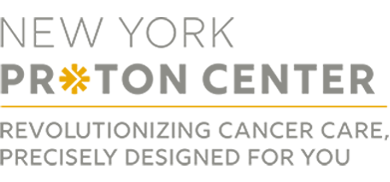Crain’s Health Pulse Q&A: Insurers slow to accept proton therapy, chief of local center says
The following interview appeared in the April 5, 2021 issue of Crain’s Health Pulse
Proton therapy has been around for many years, but getting patients and payers to accept it has been challenging, said Jon Weinbach, CEO of the New York Proton Center, the city’s and state’s first such treatment center.
Proton therapy is a type of radiation treatment in which proton beams, rather than X-rays, are used to treat cancer. The New York Proton Center, which opened in 2019 in East Harlem, was formed through a partnership involving Memorial Sloan Kettering, the Montefiore Health System and the Mount Sinai Health System.
Last month the center celebrated a milestone: It treated its 1,000th patient.
But Weinbach predicted a tough road for proton therapy before it is readily accepted as a cancer treatment.
What’s been the center’s experience with payers?
Despite proton therapy having been approved by the U.S. Food and Drug Administration for more indications, it’s still a challenge to get payers to approve it. We see about 70% to 80% of referrals to us denied by insurance, and then we have to go through an appeals process.
Thankfully, we’ve been about 90% approved through appeals. That’s a good rate considering nationally about 70% of referrals get approved, either initially or through appeals.
Why has there been a reluctance to accept proton therapy?
We need more trials and clinical evidence. Even though the science has been around a long time, there are about 40 proton centers around the country, and the amount of studies available has been That situation, however, is starting to change. There have been lawsuits for patients denied proton therapy, and they had to pay out of pocket. Payers are starting to pay more attention to this treatment. As we collectively put out more clinical evidence, payers will recognize this is an important component of cancer care.slower to catch up compared to other kinds of research.
Had research and patient care been disrupted during the height of the pandemic?
Like all health care providers, it’s been hard for the Proton Center as well. From March to June, patients were more afraid of Covid-19 than cancer. When the summer months came and things calmed down, patient visits ticked up.
Research is critical to what we do, and 97% of our patients are on clinical trials. So when volumes fell, so too did our enrollment. However, we now have about 22 trials ongoing at the Proton Center.
We are concerned, however, that there are patients who have delayed their treatment, and that might affect their health. We saw screenings really slow down, and that can hit us hard down the road in the form of missed diagnoses.
What’s this year going to be like for the center?
We’re now in a spot where patients seem to be comfortable Covid-19 exists, but [they] realize their cancer needs to be treated. We’re currently above pre-pandemic levels, but we also only started treating in August 2019. Hitting our 1,000-patient milestone as quickly as we did despite the pandemic is a good sign that things will pick up for the center. —Shuan Sim (April 5, 2021)
